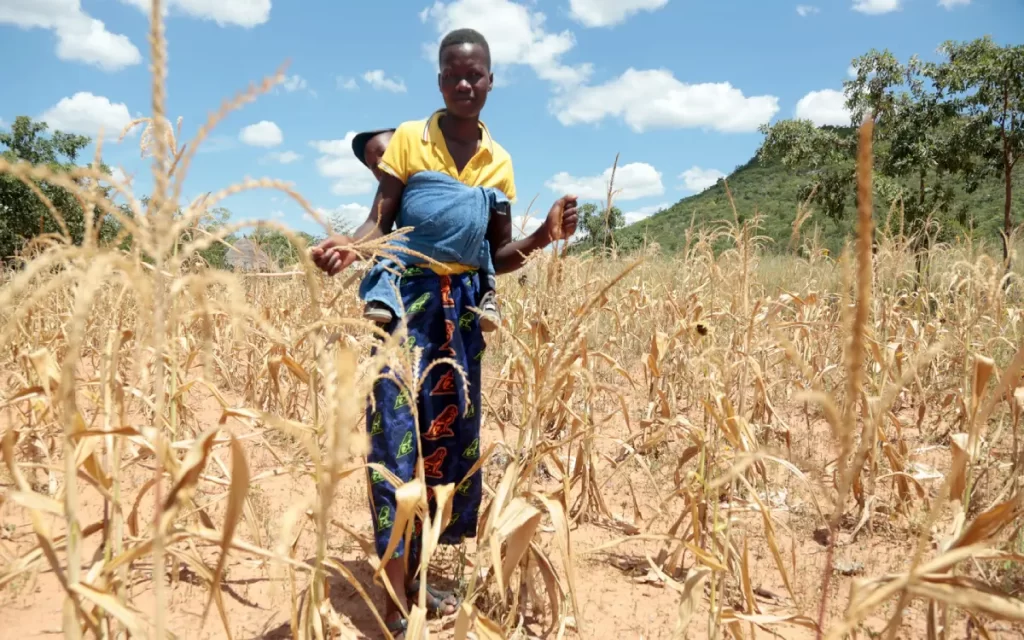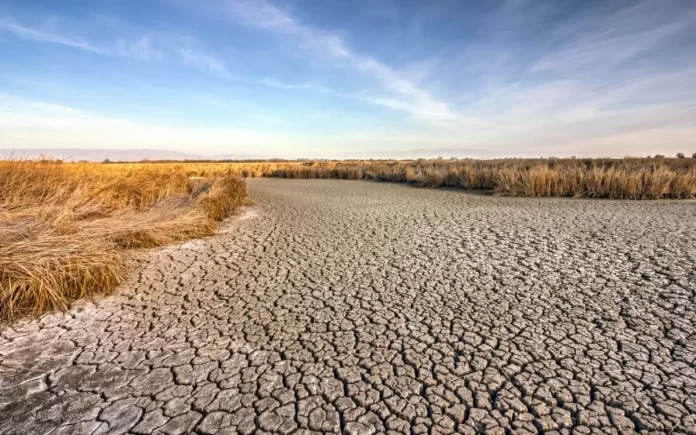Harare: President Emmerson Mnangagwa made a somber announcement on Wednesday, declaring Zimbabwe’s drought a national disaster and highlighting the urgent need for over $2 billion in aid to alleviate the hunger crisis affecting millions.
This declaration follows similar distress signals from neighboring countries, with Zambia sounding the alarm in late February and Malawi echoing concerns in March. The El Nino weather pattern, known for triggering drought conditions, has plunged southern Africa into a dire humanitarian crisis.
Addressing journalists at the state house in Harare, President Mnangagwa revealed that more than 2.7 million people in Zimbabwe are projected to face hunger this year, exacerbated by poor rainfall affecting 80% of the country.
Also Read: Earth’s Hidden Secret: Massive Ocean Discovered 700 km Below Surface

Read More: IMD Warns of Above-Normal Maximum Temperatures from April to June
“Preliminary assessments indicate that Zimbabwe requires in excess of $2 billion to implement various interventions outlined in our national response,” stated President Mnangagwa.
In response to the crisis, the government pledges to prioritize winter cropping initiatives to bolster food reserves and collaborates with the private sector to import essential grains. The El Nino phenomenon, characterized by disrupted wind patterns and warmer ocean temperatures, has intensified the severity of the drought across the region.
Also Read: Concerns Raised Over Chinese Military Involvement Disguised as Agricultural Projects in Maldives
Crop failures have been widespread since November, with many regions declaring staple crops like maize as losses. Humanitarian organizations, including the World Food Programme, have been on the front lines, providing critical assistance to vulnerable populations. However, the situation remains dire, prompting urgent calls for increased donor support.
Beyond Zimbabwe’s borders, neighboring countries such as Botswana, Angola, Mozambique, and Madagascar are also grappling with the devastating effects of the drought, further underscoring the regional scale of the crisis.



